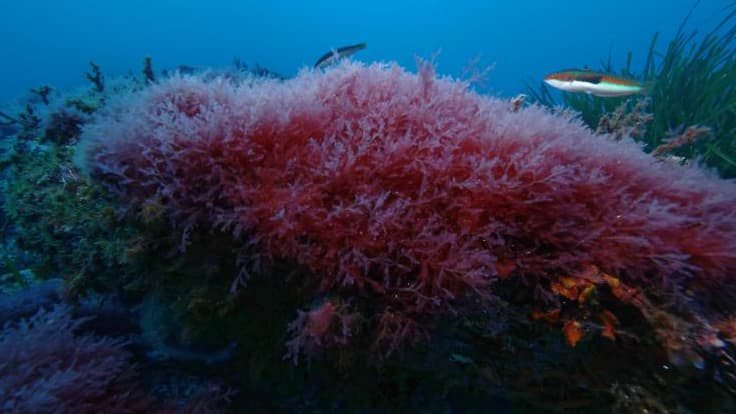The algae originating from the Red Sea and the Indian Ocean was detected last December. It could be harmful to marine biodiversity.
An algae could threaten marine biodiversity in Port-Cros National Park. On December 15, an invasive algae, “Lophocladia lallemandii”, was discovered during a dive by park agents and scientists from the Mediterranean Institute of Oceanology, Port-Cros Park announced in a press release. published on its website. Several carpets of this red algae have even been found.
Responsible global warming
This filamentous algae is usually present in the Red Sea and the Indian Ocean. Port-Cros National Park is a reminder on its website, that the Mediterranean Sea is the region of the world with the greatest number of introduced species.
The algae would have reached the seabed of the Var due to global warming, according to teacher-researcher Sandrine Ruitton.
“The few tens of degrees of warming of our Port-Crosian waters and the French coast are sufficient for the installation of these species”, explains the professor of the Mediterranean Institute of Oceanology at BFM Toulon Var.
“Ecological consequences” on the seabed
The presence of “Lophocladia lallemandii” raises fears of a harmful impact on the region’s marine biodiversity. On its website, the park explains that the algae could disturb the functioning of ecosystems. “It produces toxic molecules that protect it from predation,” he says.
This algae could in particular disrupt the growth of Posidonia, a flowering sea plant found in the Mediterranean.
“It has an invasive behavior, so it risks having ecological or economic consequences on certain activities. It is worrying because in the marine environment, we have no means of acting concretely. is very difficult to control and it is very difficult to restrict its expansion”, worries Sandrine Rutton.
Contacted, the national park affirms that the algae in question cannot be extirpated from the seabed of Port-Cros. Scientists plan, however, to monitor its expansion.


